Building T1D research in partnership with you.
We need people living with type 1 diabetes to shape the research questions that can deliver the evidence needed to advance better treatment, policy and care.
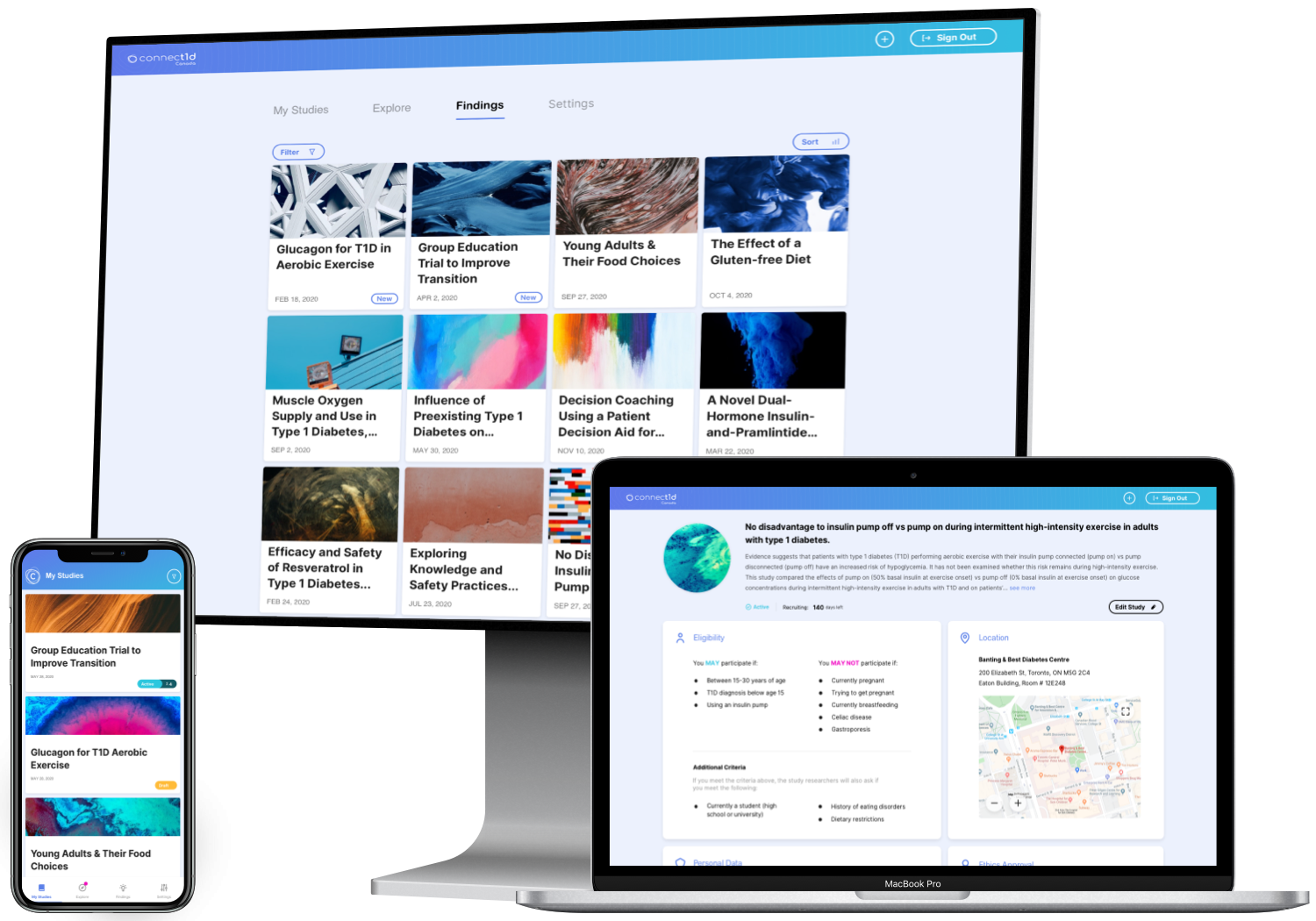
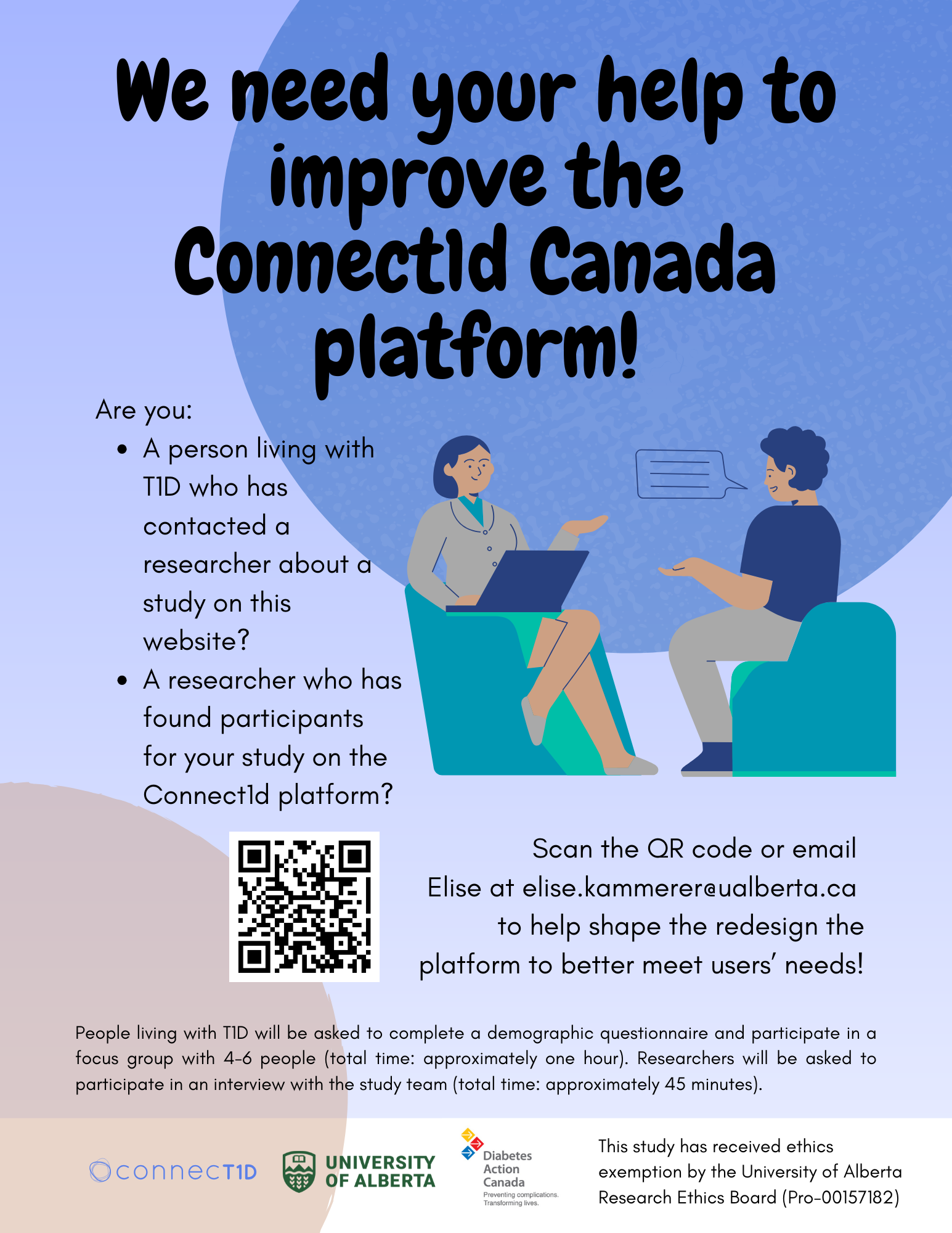
NEW! – User experience of the Connect1d platform

Connecting the Canadian T1D community
Explore Canadian diabetes research and learn how our community is reshaping what it means to live with T1D.
Current Research Projects
User experience of the Connect1d platform
Fasted Exercise Training in Type 1 Diabetes
Effect of Virtual Care for Gestational Diabetes
Artificial sweeteners and Metabolism
T1D Study: Empagliflozin and Insulin Pumps
SUGAR NSalt
Type 1 Diabetes Study-VX20-880-101
TrialNet: Pathway to Prevention Study – Screening
Research News


Alterations in skeletal muscle repair in young adults with type 1 diabetes…


Decision coaching using a patient decision aid for youth and parents consi…

Individual and community-level income and the risk of diabetes rehospitali…


Which one are you?
Living with T1D
Many of us have lived experience with T1D, and we want to work closely with the diabetes community to co-create what the future of living with T1D looks like. Previously, we have heard from others living with T1D that they feel disconnected from research – hopefully with your help, we can change that!
Get involved
Tell us about yourself;
Find out about studies, trials and projects that matter to you;
Participate in the research that is the right fit for you;
Stay informed about what happens at the end of the study – what did it find, what does it mean, what are the next steps after you participate;
All leading to better, more accessible, timely T1D research.
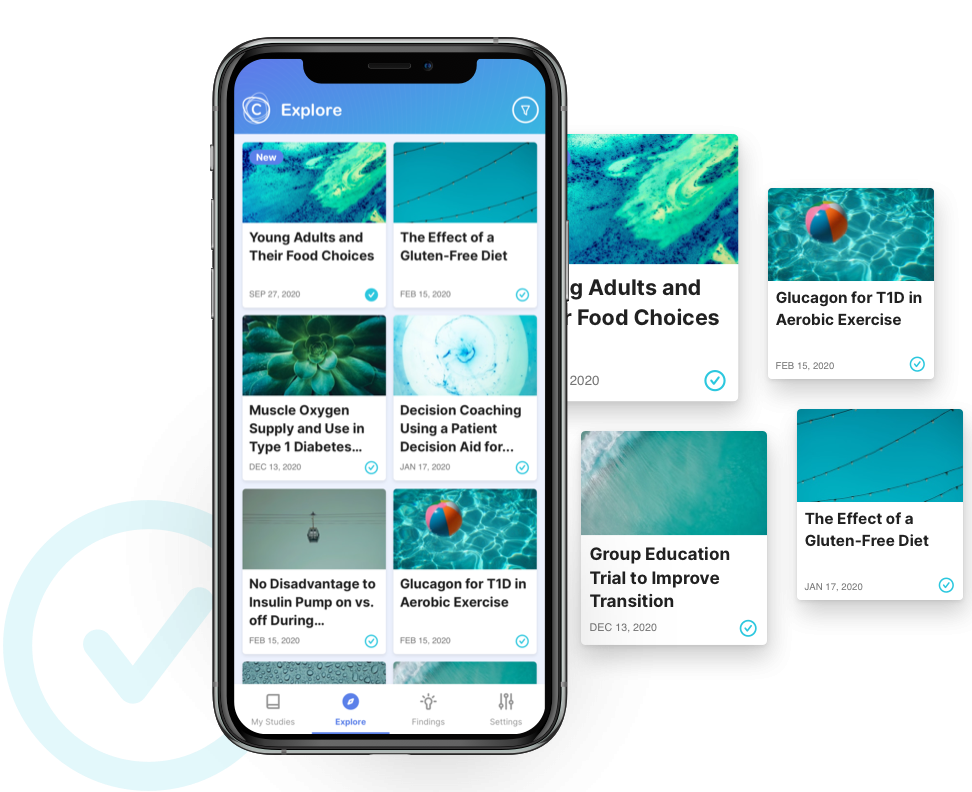
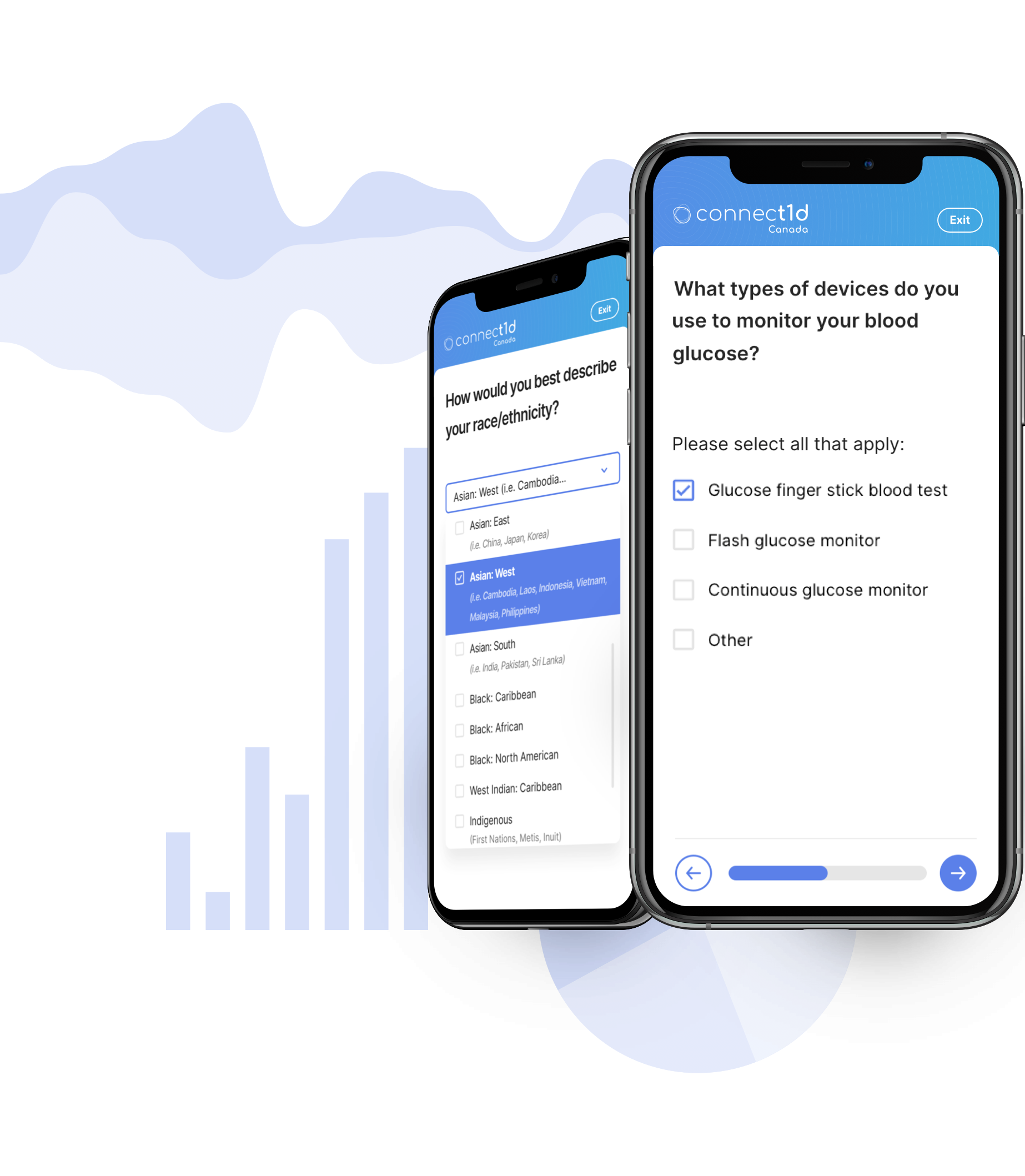
Your experience can change T1D research in Canada.
Through Connect1d Canada, we want to capture every person living with T1D so that we can accurately represent the needs of this community and spark changes to policy and care. Unless we know how big the issue is and the key problems, it will be easy for T1D to be ignored. By joining Connect1d Canada, your voice can be heard – helping shape and direct future research and clinical care.
Get Connect1d
Connect1d Canada keeps you up to date on what is happening in the T1D research community. From upcoming studies to research outcomes, it uncovers the questions researchers are asking and, more importantly, what they are learning.

Researcher of T1D
Researchers have told us that they struggle to connect with people living with T1D and recruit them into studies, sometimes taking years to find enough of the right people to complete a study or clinical trial in T1D. By joining Connect1d, we can help you by providing:
- Streamlined recruitment: Connect1d Canada can help streamline the recruitment process for your studies by connecting you with participants who have already expressed an interest in research.
- Access to a large and diverse patient population: Connect1d Canada has a growing network of people with T1D across Canada. This can provide you with access to a broad and diverse patient population for your research studies.
- Patient-centred research: Connect1d Canada is focused on involving people with diabetes in every step of the research process, from study design to dissemination of results. By getting involved, you can benefit from this approach and work collaboratively with patients to design and conduct studies that are more relevant and meaningful to them.
- Connect1d Canada welcomes opportunities to share research from both non-profit and for-profit organizations. If you represent an industry-sponsored organization, please note that additional review and a listing fee may apply depending on the scope, recruitment goals, and target population of the study.
Diversity, equity & inclusion
Our aim is to make research represent the diverse community of people living with T1D. We work with our patient and community partners to ensure the inclusion and representation of those who have been historically excluded or underrepresented in research studies. Work with us to give every person impacted by T1D the opportunity to learn, contribute, and accelerate research.
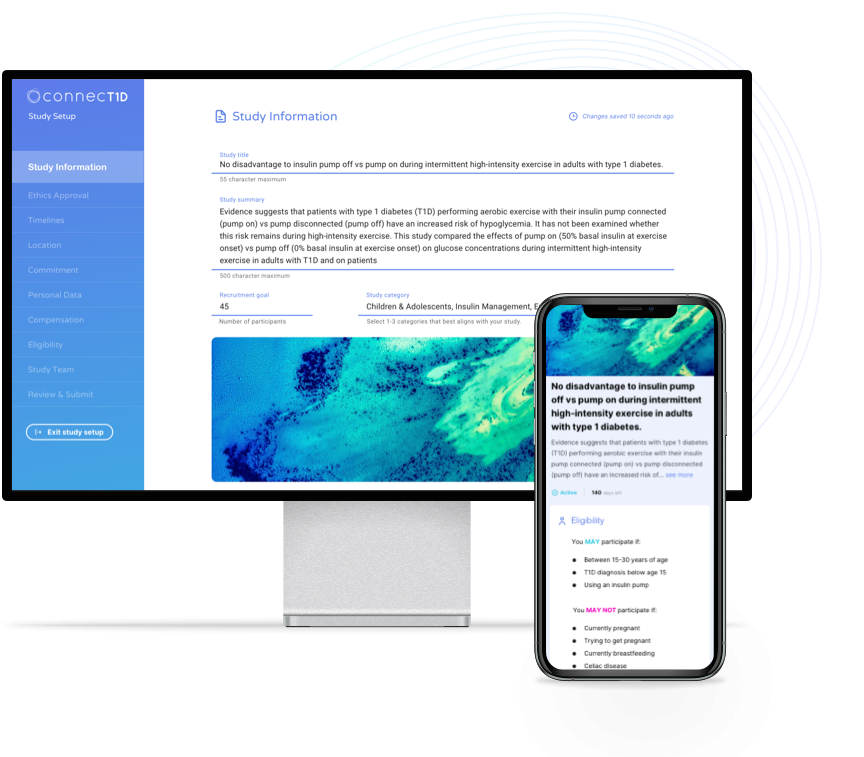
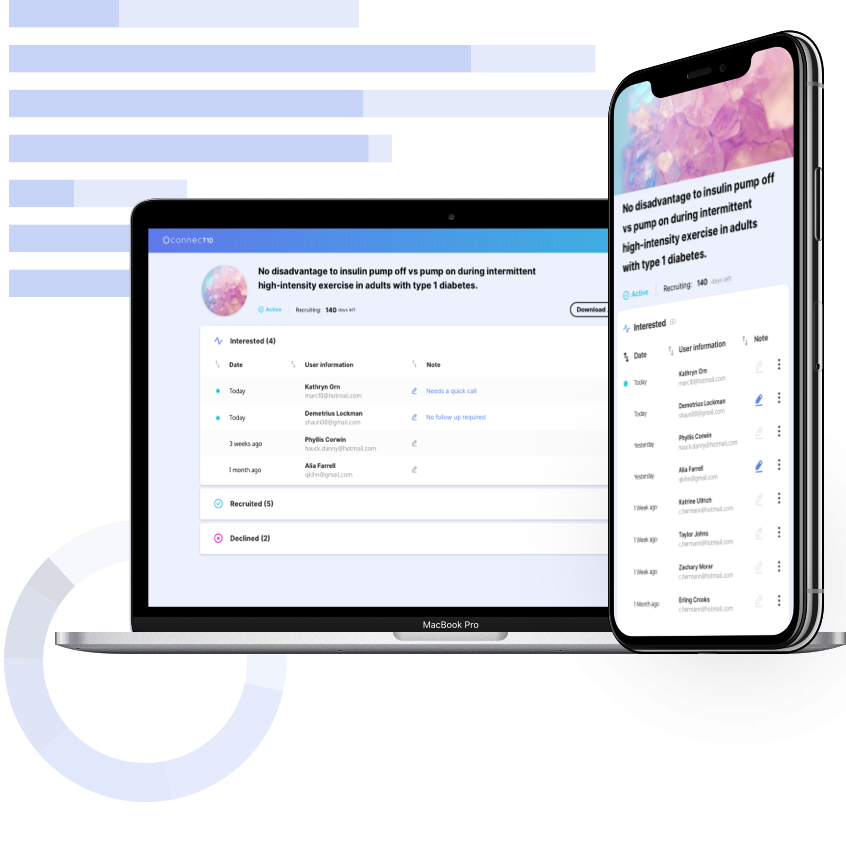
Patient Oriented Research
Connect1d Canada ensures that the values, needs, and preferences of people with lived experience are front and center. By co-creating Connect1d Canada with the diabetes community, we have built a platform for better participant engagement and retention than traditional research recruitment. This can ultimately lead to higher participant retention rates, better data quality, and improved outcomes for your research projects.
Accelerate Recruitment
Connect1d Canada rethinks traditional recruitment approaches and brings you the ability to rapidly recruit participants from across Canada. Once your study is posted, you will easily see who in the community is eligible to participate, and who is interested.

Co-creating with leading experts in diabetes research

The Canadian Institute for Health Research
The Canadian Institute for Health Research has funded this project as part of the Diabetes Action Canada.

University Health Network
This initiative was designed and developed by the Centre for Global eHealth Innovation and University Health Network in Toronto, Canada.

Diabetes Action Canada
Diabetes Action Canada, a Strategic Patient-Oriented Research (SPOR) program, made this project possible.

Strategic Patient-Oriented (SPOR) Network
Diabetes Action Canada received funding for this program as a CIHR Strategic Patient-Oriented (SPOR) Network in Chronic Disease.
Our team
We want to make sure that every Canadian living with type one diabetes has the chance to engage in research in a meaningful way.
We’d love to hear from you
Begin your Connect1d Canada experience








